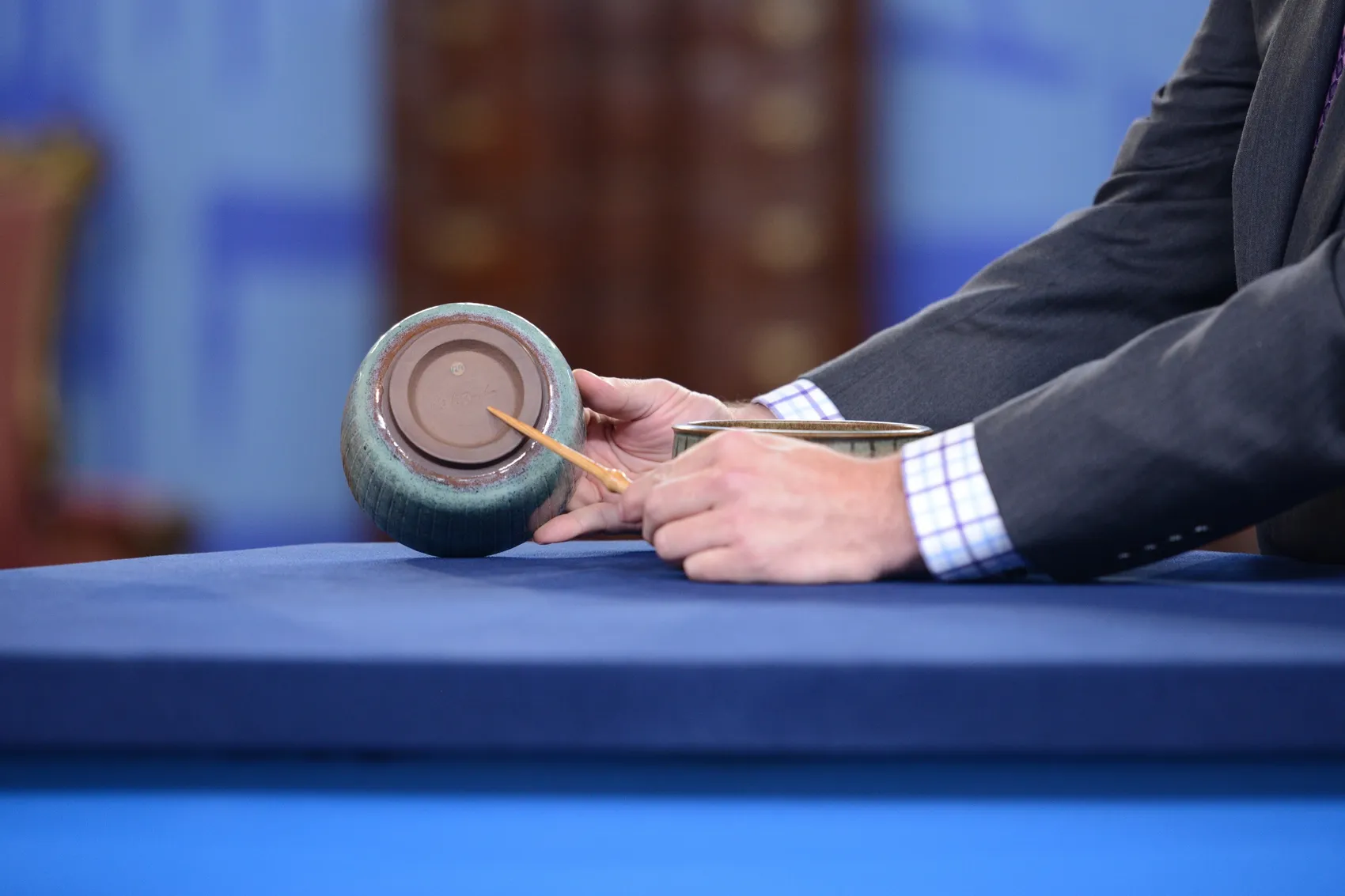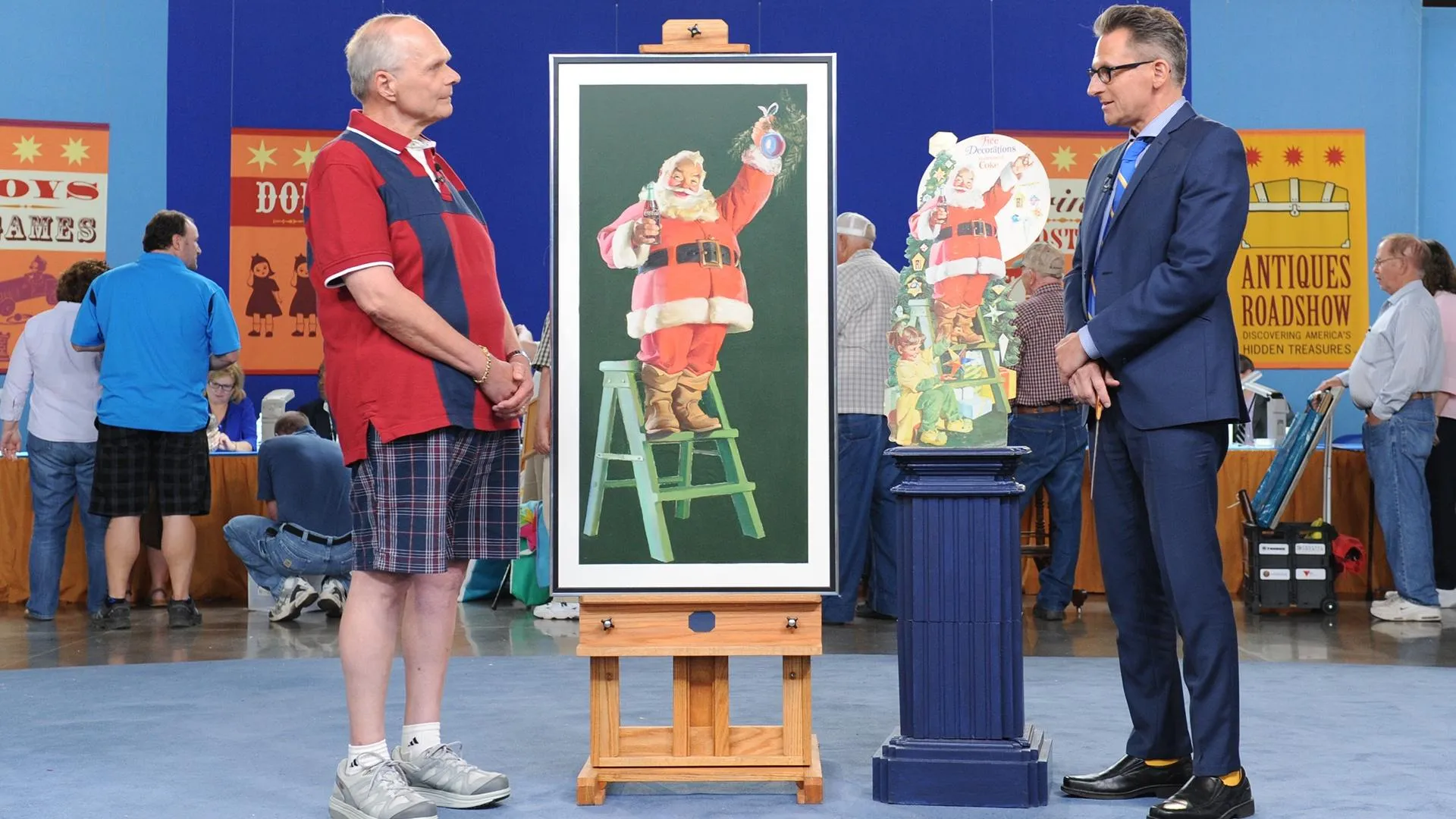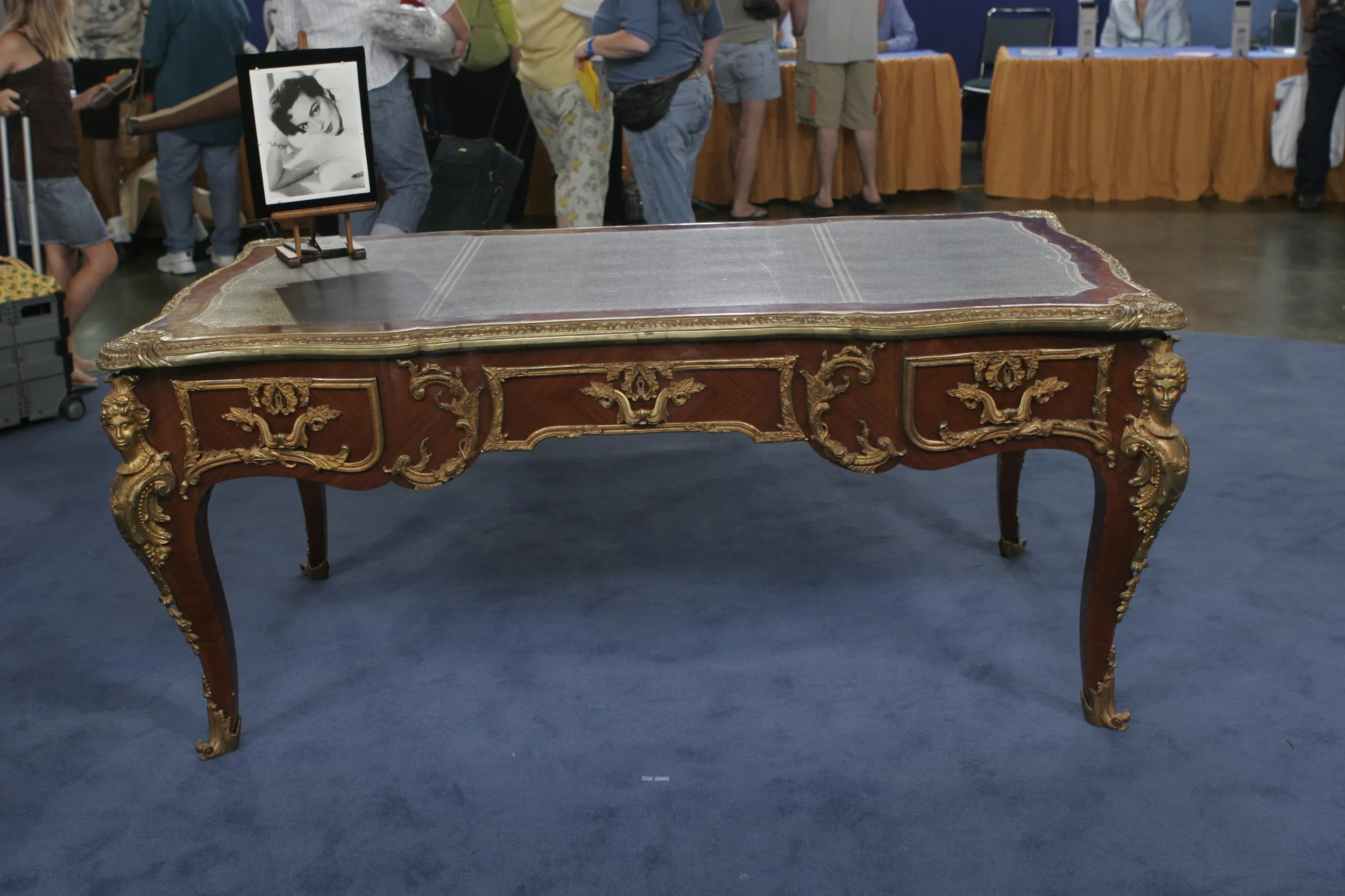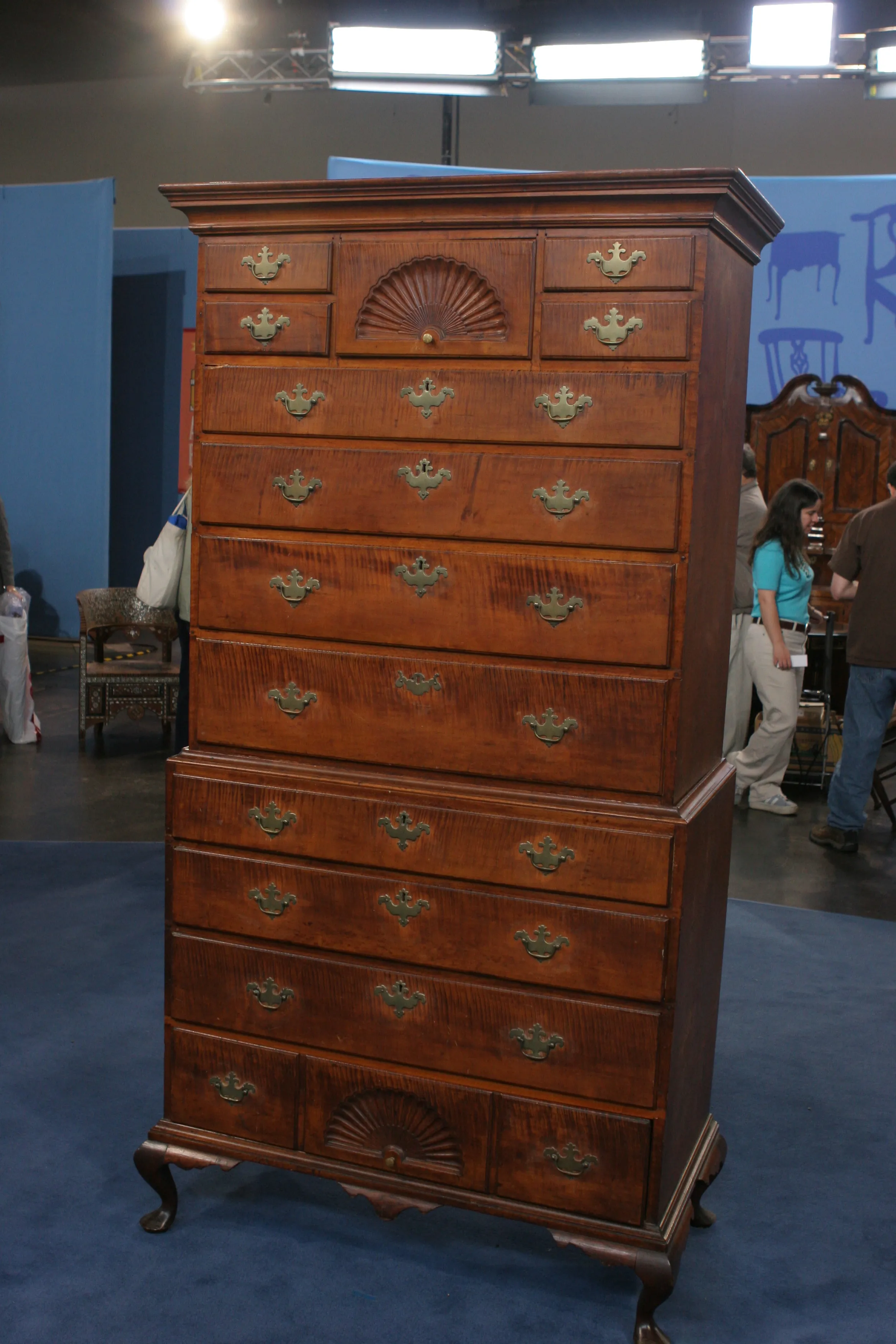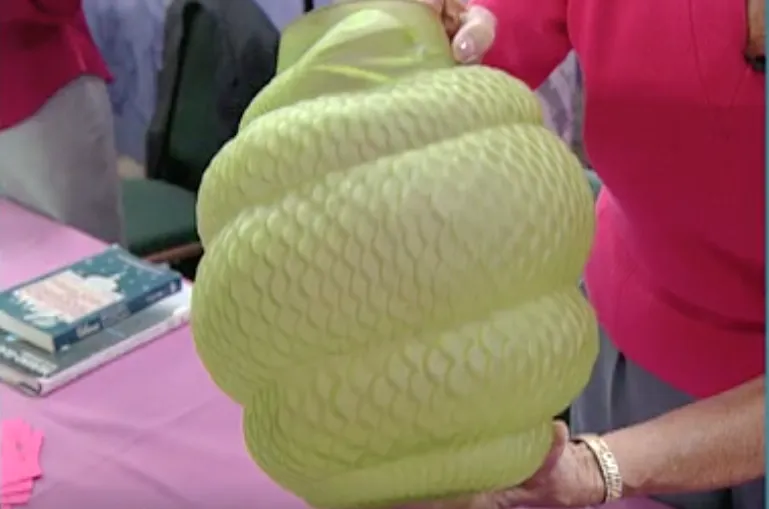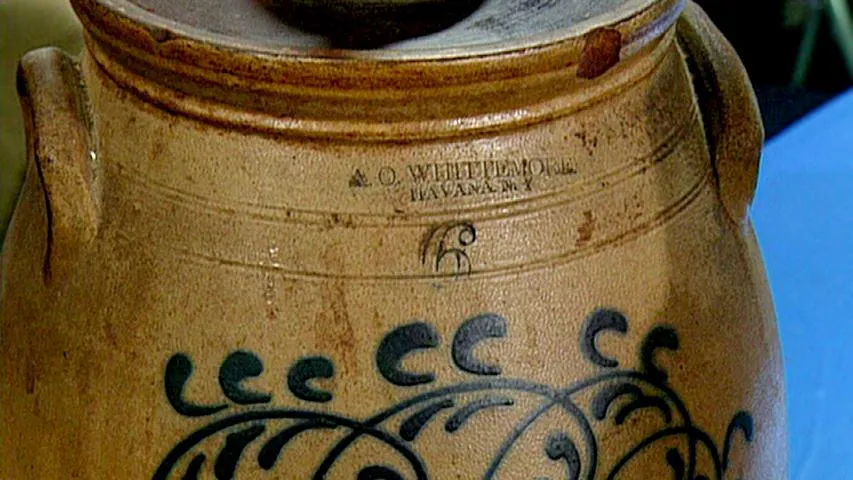GUEST: We brought two pieces of Harrison McIntosh pottery. Don't know a lot about them. We got them at an auction sale. My wife was bidding on some stuff at an auction sale, and there was a piece of carnival glass that she was interested in, and this was included in the box.
APPRAISER: Okay, so you got them home and did you do a search on the Internet? What did you find?
GUEST: Well, we looked and we didn't find really a lot. We couldn't find those patterns-- some similar, but not anything exactly like that.
APPRAISER: The thing about Harrison McIntosh is he didn't do the same thing twice.
GUEST: Cool... interesting.
APPRAISER: He was a classically trained studio potter. He was trained by two very influential people: Glen Lukens, who was an outstanding award-winning studio potter, and also trained by Marguerite Wildenhain, who was a Bauhaus art school of Germany educated potter. Out of those associations came a level of detail that was just remarkable. The work that Harrison did, you'll never see something out of round-- executed to perfection almost all the time. Let's take a look under the bottom of these two. We have two different signatures, and I want to show those. So let's first go to this piece over here, and we see the McIntosh script signature.
GUEST: Yes.
APPRAISER: McIntosh started his studio in about 1954. And from '54 till about the early '60s, we saw him use this script signature. Now I'm going to jump over to this one over here, and we're going to see a different set of marks. We see a little impressed "HM," we see a paper label. We believe he switched to this impression sometime in the early '60s.
GUEST: Okay.
APPRAISER: Now, how much did you pay for that box lot?
GUEST: I believe it was, like, $20 for the box, and there was this and several other things in there, including the carnival glass.
APPRAISER: So what would you say if today, I told you at auction, it would be reasonable to expect them to be estimated between $1,000 and $1,500 each?
GUEST: Each, really? Well, that's wonderful.

